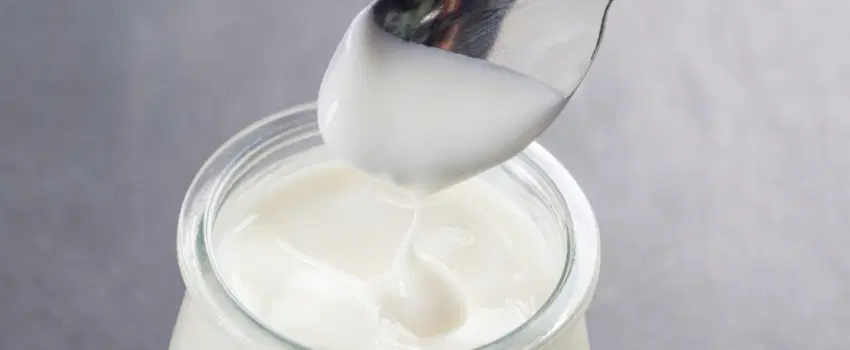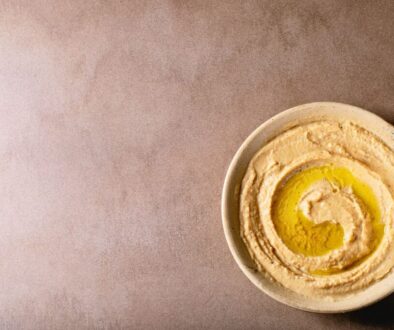How Much Yogurt is Too Much? It Depends

Published November 9, 2020
They say that anything done in excess is bad for you. Apparently, this applies to yogurt too – a food many people consider to be the holy grail of probiotic foods. So how much yogurt is too much?
There really is no standard limit when it comes to yogurt intake. But different government and health organizations recommend around 2 to 3 servings of yogurt per day. Though eating more than the recommended amount doesn’t necessarily mean it will harm you.
Remember that yogurt comes in full-fat and non-fat varieties and in an assortment of flavors. Aside from probiotics, each type and flavor also contains widely varying amounts of sugar, protein, and fat. So how much yogurt is too much depends on what type of yogurt you’re eating and your overall health condition.
How Much Yogurt Should You Eat In a Day?
According to the US Department of Agriculture (USDA), each person needs between 2 to 3 cups of yogurt per day. Children two to three years old may need up to 2 cups of yogurt daily. While the recommended daily yogurt intake for adults is 3 cups. One cup refers to an 8-ounce serving.
But can you eat more than 3 cups of yogurt per day?
Definitely! But know that there are health risks associated with excessive yogurt intake.
According to the USDA, each container (8oz.) of plain full-fat yogurt has:
- 8 grams of protein
- 140 calories
- 7.5 grams of fat
- 11 grams of carbs
While a plain non-fat yogurt of the same serving size has:
- 130 calories
- 13 grams of protein
- 0.5 gram of fat
- 17.5 grams of carbs
Flavored yogurts will, of course, contain more sugar and calories than this.
Based on these numbers, eating 3 servings of plain non-fat yogurt per day will yield 420 calories, 22.5 grams of fat, and 33 grams of carbs. The more yogurt you eat, the more fat, calories, and carbs you’re taking into your system.

What Probiotic Strains Can You Use For Canker Sores?
If you do some research, you won’t be able to find a lot of probiotics that can treat mouth sores. The most commonly used probiotics are those that treat bowel diseases like diarrhea.
Thanks to Bionaze, treating and preventing mouth sores through probiotic supplements are now possible.
Bionaze is a clinically approved probiotic supplement made with BLIS K12 and B1-04, two cutting-edge strains. This probiotic supplement maintains healthy oral bacteria. Thus, preventing mouth problems including mouth sores.
But wait, there’s more. This probiotic supplement has a lot more to offer other than treating your mouth sores.
It has strains that target the bacteria found in the ears, nose, and throat. Thus, it also works best for upper respiratory infections such as hay fever, rhinovirus, asthma, and many more.
When To Call a Doctor
While mouth sores cause little to worry about, getting it more often might be a sign of a weak immune system. If you experience mouth sores frequently and last for more than two weeks, seeking help from your doctor is highly advised.
(Related: Postbiotics: Are They Better Than Probiotics?)
Benefit From The Latest Advancements In Probiotic Science With Bionaze
Bionaze is a proprietary blend of probiotics proven to promote ear, nose, and throat health, improve digestion, and support your immune system. The active ingredients BLIS K12, and BL-04 are considered among the best probiotics according to science.
Get 25% Off Your First Order when you use BIO25 at checkout!

This Content Has Been Reviewed For Factual Accuracy
This content has undergone thorough fact-checking by our team of internal experts. Learn more about the meticulous editorial standard for our website here.
ADVERTISEMENT

About The Author
Judy Ponio is a professional writer based in the Philippines. Her commitment to communicating factual content in when writing is unmatched. She works hard to cross check reputable sources to ensure her work uses accurate facts.




